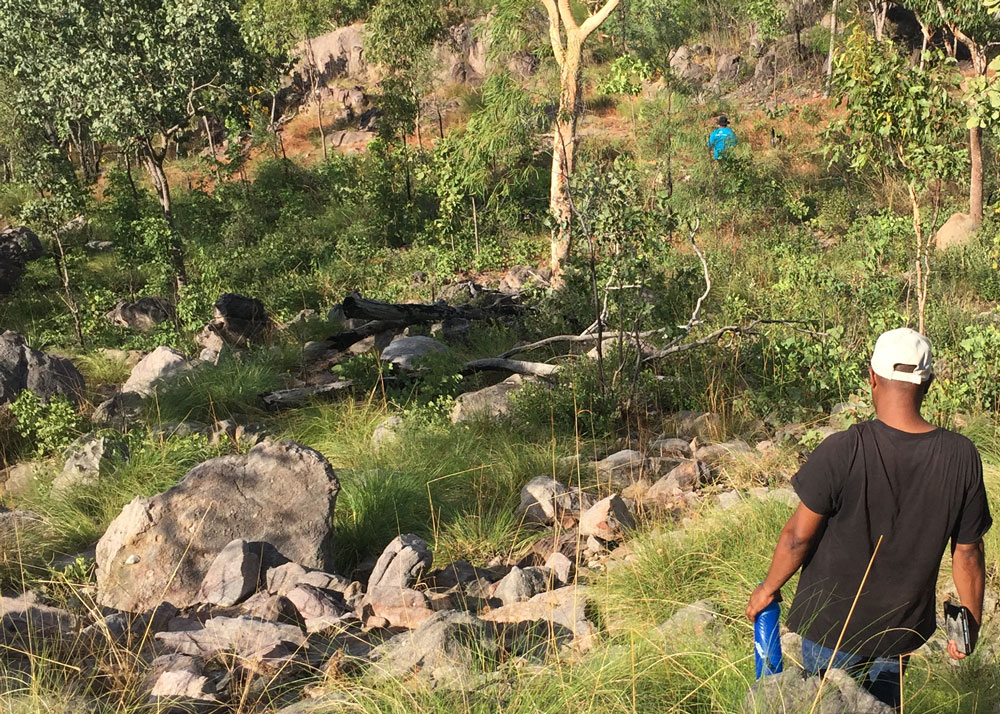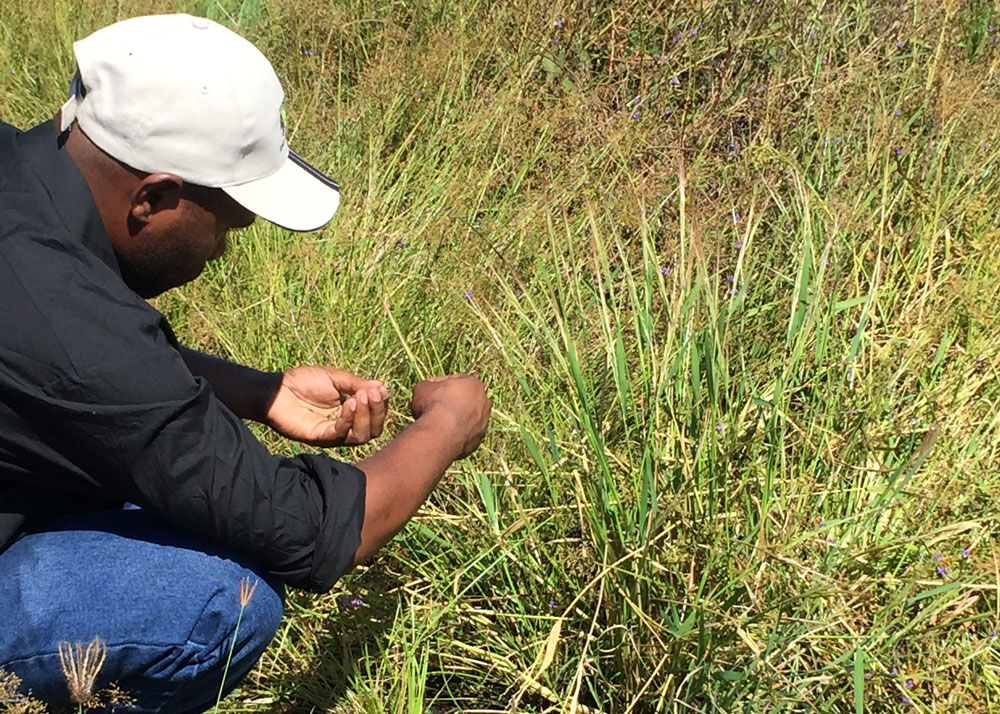

Training in seed collecting and conservation for forest species in Indonesia and PNG,
May 9, 2018
With thanks to The Crawford Fund and the Australian Grains Genebank (AGG), two researchers from our closest neighbouring countries, Indonesia and Papua New Guinea, travelled to Victoria for training in developing ex-situ genebanks for seed conservation. This followed a visit to Kakadu for training in crop wild relative seed collecting, supported by the Millennium Seed Bank (MSB) Kew Gardens.

Ex-situ genebanks are one of the most valuable and effective methods of preserving crop diversity and can be found around the world, with one of the most notable genebanks being located in Svalbard, Norway.
Recently, The Crawford Fund visited the Svalbard Global Seed Vault to celebrate its 10th anniversary.
Jimmy Frans Wanma, researcher and lecturer at the University of Papua (UP) and Gibson Sosanika, researcher from the Papua New Guinea University of Technology (PNG UT) undertook an eight-day training course with Dr Sally Norton, head of the Australian Grains Genebank and a keen crop wild relative collector; research scientist Dr Katherine Whitehouse and collection technical officer Kevin Murray. The training program was designed to improve applied knowledge and experience in the practicalities of preserving seed into a long term genebank.
“This new knowledge will allow Jimmy Wanma and Gibson Sosanika to develop improved programs to conserve the forest species they work with in their home countries for resource management and food security. The AGG has implemented best practice into its activities and is well positioned to provide this training to the international participants,” said Dr Norton.
The training, held at the AGG’s Horsham facility in regional Victoria, offered hands-on experience setting up seed viability tests, collecting data, assessing data integrity, and the management of data in specialised databases.

Study of the principles of post-harvest seed threshing and cleaning, and the preparation of seeds for long term storage were complimented with practical experience. To conclude their visit to the AGG, the trainees identified further capacity building requirements that could be met by additional training with the AGG or other Australian host organisations.
“Overall, Wanma and Sosanika developed an applied understanding of genebank practices based on international genebank standards. This will allow them to extend their new skills with colleagues through seminars and workshops upon their return to their home organisation, resulting in improved conservation of forestry species in both Papua, Indonesia and Papua New Guinea,” said Sally.
“Strengthened connections have been developed as a result of this training which has the potential to improve the exchange of germplasm and data and develop opportunities for collaborative research to more effectively utilise and conserve germplasm,” said Sally.
Sally will be joining The Hon Tim Fischer, former Crawford Fund chair and now Chair of the Crop Trust; Dr Tony Gregson, Crawford Fund Board Member and Kent Nnadozie, Secretary of the International Treaty on Plant Genetic Resources for Food and Agriculture of the UN FAO for a Rural Press Club Victoria event being facilitated by the Fund in Horsham on 8 June.




